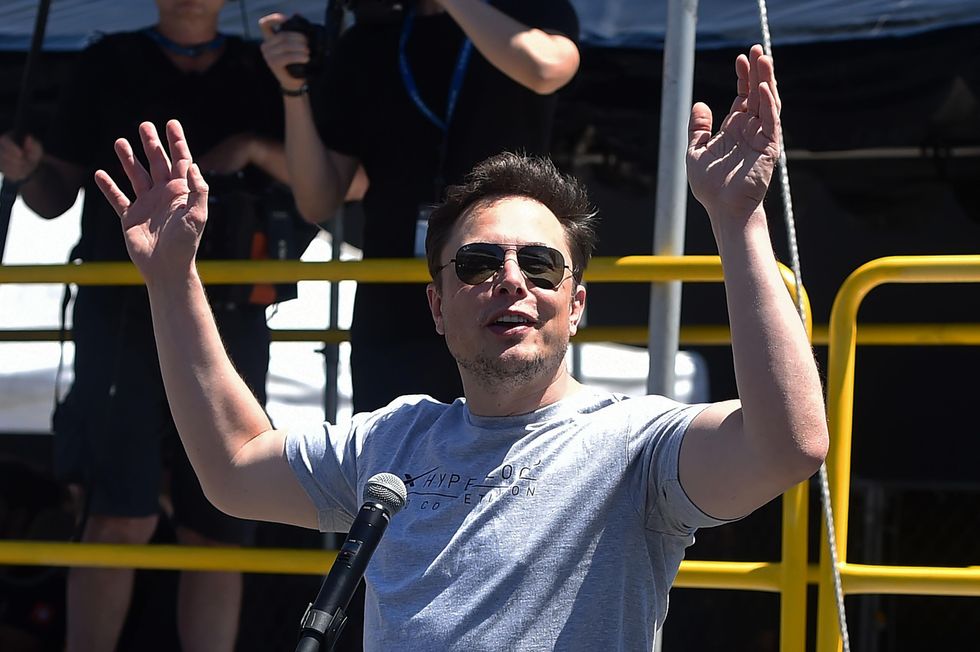
SpaceX, Tesla and The Boring Company founder Elon Musk speaks July 22 at the 2018 SpaceX Hyperloop Pod Competition, in Hawthorne, California. SpaceX plans to re-launch a Block 5 rocket on Tuesday just three months after its original flight. (ROBYN BECK/AFP/Getty Images)



